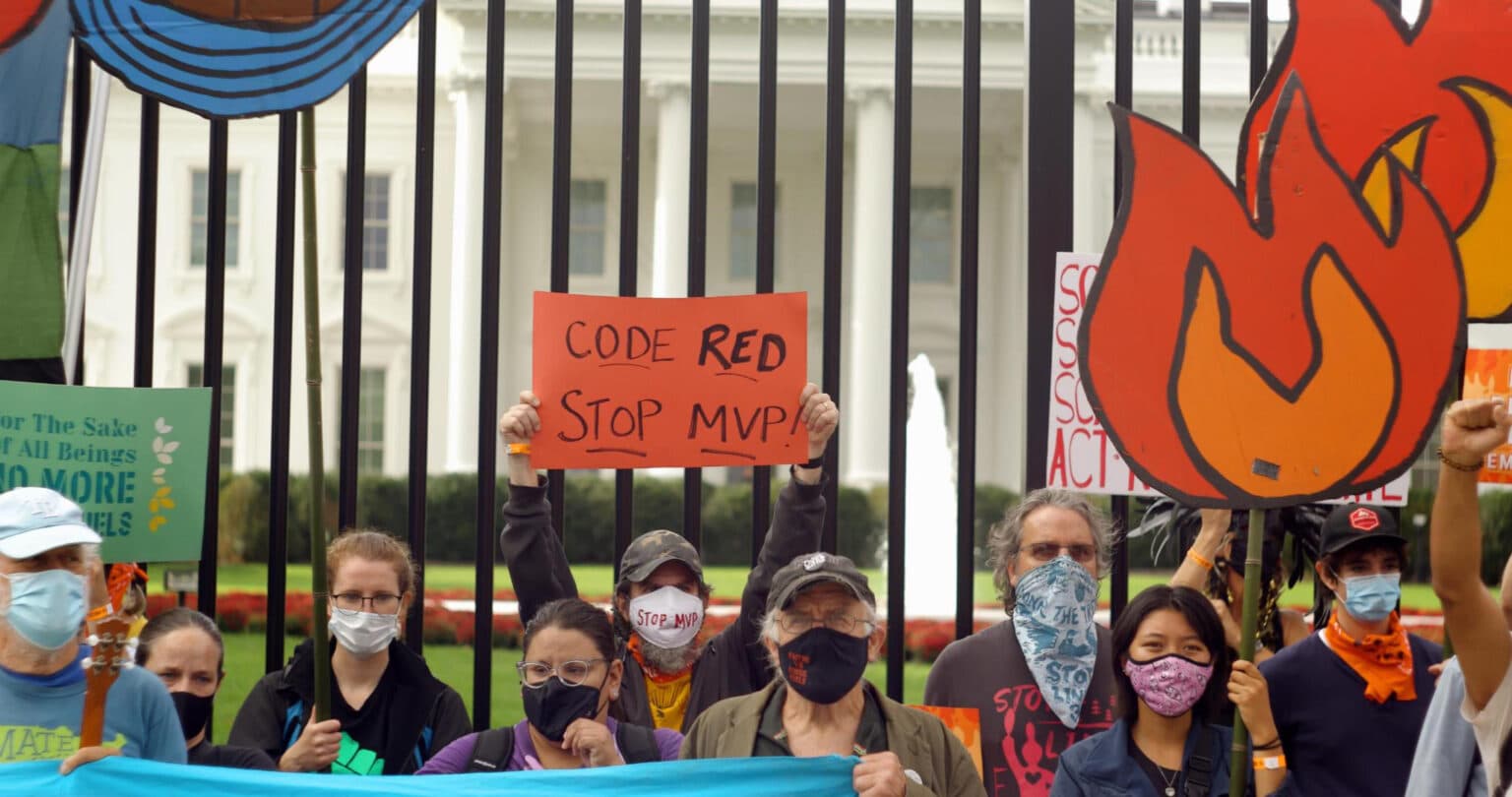While the recent UN climate change conference in Scotland may have captured the world’s attention, an equally important, albeit far more obscure process has been slowly unfolding far from the glitz and glamour of the global stage.
Indeed, just seven people in Virginia will play an outsized role in determining whether we keep accelerating toward climate breakdown, or begin, finally, to tap the brakes.
These seven members of the public serve on the Virginia State Water Control Board, an independent regulatory body tasked with administering the state’s water laws. On December 14, these individuals will vote on whether to issue Mountain Valley Pipeline (MVP) a set of key permits. The stream crossing permits in question would set construction in motion once again on this long-delayed fracked gas pipeline.
It is imperative the State Water Control Board deny MVP’s permit application.
The MVP has unfortunately received less national and international media coverage than other pipelines, in large part because it plows through the land of low-income, rural, and elderly communities in Virginia and West Virginia. However, it is no less dangerous to the planet than other fossil fuel pipelines. Indeed, at 42 inches in diameter and 303 miles long, the MVP is the largest methane gas pipeline currently under construction in the U.S.
The harm from the MVP will mirror its massive scale.
At the local level, the pipeline is slated to cross nearly 1,000 streams and has clear-cut its way through over 200 miles of forest in the heart of the Appalachian Mountains. The MVP has received over $2.5 million in fines for environmental violations since beginning construction in 2018, and more fines are likely on the way. The damage to the health and wellbeing of residents along the pipeline route is incalculable.
Globally, the MVP runs counter to the transition away from fossil fuels and towards increasingly cheap sources of clean, renewable energy. If completed, the 2 billion cubic feet of fracked gas flowing through the pipeline each day would account for around 1 percent of the total greenhouse gas emissions of the entire U.S. energy sector. This is the equivalent of building 23 new coal-fired power plants, at a time when our collective future depends on the world immediately taking all available actions to address the deepening climate crisis.
Following delays due to successful legal challenges that resulted in the suspension of most of its permits, the $6.2 billion MVP is now $2.5 billion over budget and nearly four years behind schedule. There is simply no need for the MVP, and the project is closer than ever to being canceled.
The Virginia Air Pollution Control Board recently cast the project into further doubt when it denied a separate permit to MVP for its Southgate Extension project, which would extend the MVP mainline an additional 75 miles into North Carolina. The decision was not even close; the fact that MVP had proposed to site project infrastructure within an environmental justice community provided board members with the clear rationale and sound legal footing they needed to deny the permit.
This permit denial should serve as a source of inspiration for the State Water Control Board, and a reminder that the board members serve the public, not the profit motives of private enterprise.
The U.S. Clean Water Act grants Virginia the right to deny stream crossing permits whenever it lacks “reasonable assurance” that the proposed activities will uphold state water quality standards. MVP’s history of environmental violations – over three hundred, and counting – provides the State Water Control Board with the iron-clad legal foundation it needs to deny MVP’s permit application. Not to mention the Environmental Protection Agency has also recommended that the U.S. Army Corps of Engineers refrain from issuing a related stream crossing permit to MVP.
To protect Virginia’s rivers and streams, and assist the world in meeting ambitious climate targets, four of the seven members of the State Water Control Board must take a scientific, legal, and moral stand, and vote against issuing stream crossing permits to MVP.
The world will undoubtedly feel the impact of the decision these seven individuals make on December 14.
Jacob Hileman is an environmental scientist with a Ph.D. in Hydrologic Sciences from the University of California, Davis. He was raised in the Catawba Valley of Virginia, and is presently a researcher with the Centre of Natural Hazards and Disaster Science at Uppsala University.
Bill McKibben is an author, environmentalist, and activist. In 1988, he wrote The End of Nature, the first book for a common audience about global warming. He is a co-founder and Senior Advisor at 350.org, an international climate campaign that works in 188 countries around the world.
Subscribe to our newsletter
Stay up to date with DeSmog news and alerts







